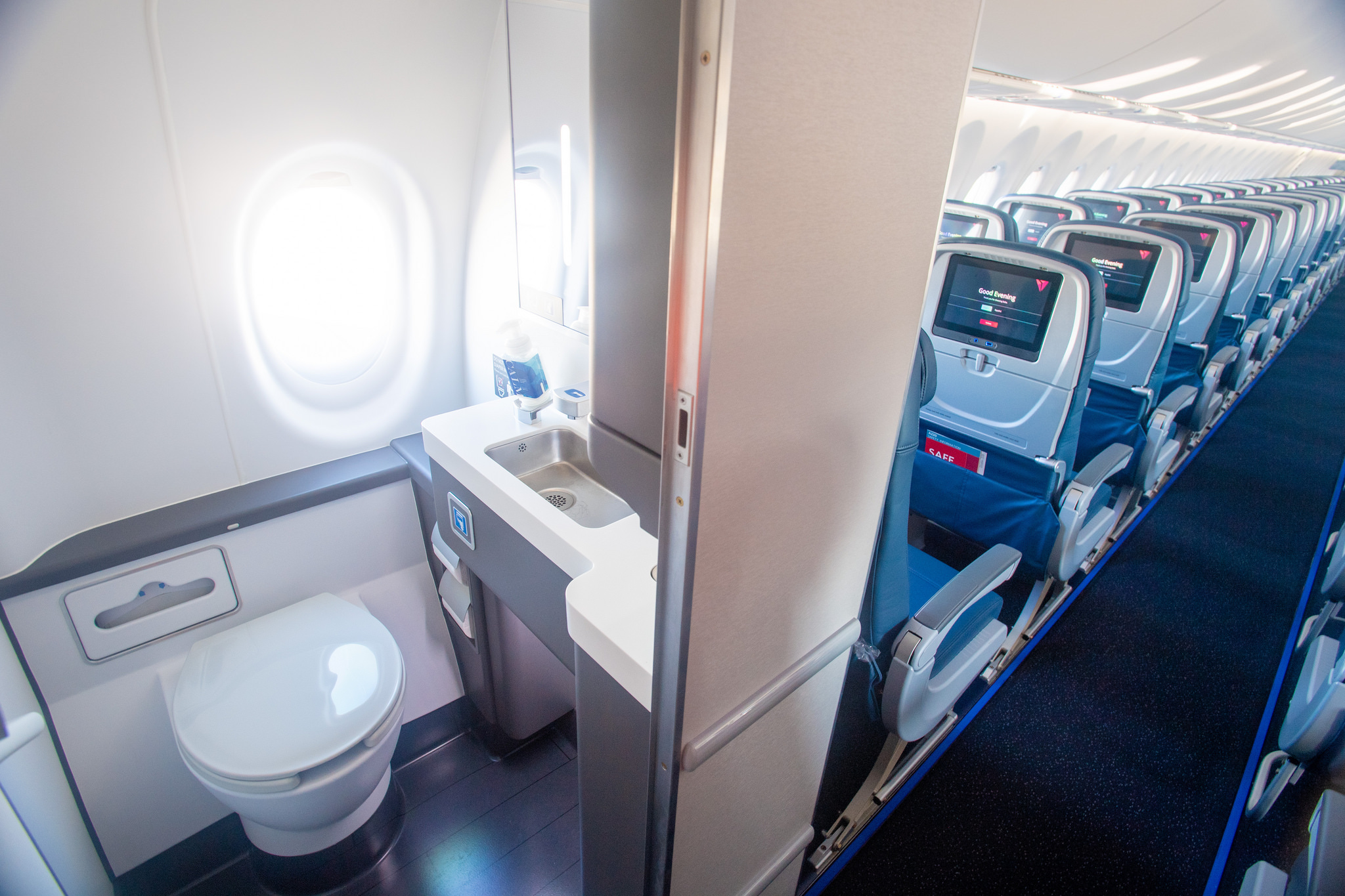

Hop on a domestic Delta flight early next year, and there’s a chance you’ll find something rare onboard. The airline is introducing 75 new single-aisle planes called A220s, and each one of them will have a 16-inch-tall window—in the bathroom.
It seems like a small detail, but a bathroom window is basically unheard of on a commercial passenger plane that’s not a widebody mammoth of an aircraft. Airbus, which makes the new A220s, already offers bathrooms with windows in them on its big planes: the A330, A350, and A380. Widebody aircraft like these are typically used on international flights; Delta, for example, flies A350s from Detroit to Tokyo.
On the other hand, these new little 109-seat Delta A220s with bathroom windows will fly much more pedestrian routes, like from New York’s LaGuardia to Boston or Houston.
Airbus’s rival Boeing is essentially windowless when it comes to their onboard bathrooms. A Boeing representative says that starting with the 707—which first began flying in the 1950s—none of its standard commercial planes have had a lavatory with a window in it, with one known exception involving a Scandinavian airline called SAS and the Boeing 737-600s it requested.
With the A220s, airlines can decide if they want a bathroom window or not, and the feature actually doesn’t involve adding an additional window to the aircraft’s fuselage. Instead, the window is in that position no matter what, baked into the design of the plane. When an airline requests the aircraft from Airbus, they can decide how to use that space. The carrier can choose to put seats in front of the window, or build a lavatory in front of it. If they opt for the lav, they can leave the portal there, or be boring and place a wall between the inside of the lav and the window.
The windows on these little A220s are large: 16 inches high, by 11 inches wide, which Airbus boasts are bigger than the windows on a wide-body Boeing 777. That’s true, but in Boeing’s defence, the Boeing 787, or Dreamliner, has bigger windows still: at 18.5 inches tall, by 11 inches wide, they are huge. But sadly none of those Dreamliner portals are in the bathrooms.

Putting a window in the on-board restroom can have benefits besides the view. “It appears bigger and brighter and cleaner,” says Christine De Gagné, the aircraft interiors marketing director for Airbus. (Judge these points for yourself if you ever experience this airborne rarity.)
Richard P. Anderson, a professor of aerospace engineering at Embry-Riddle Aeronautical University, wondered if the window might affect how long people spend in the bathroom. “You want people in and out, so you don’t want to make it a pleasant place to be,” he muses. “If you’re looking for throughput, having [the lav be] not-so-friendly might be a good thing.”
On a practical note, windows on airplanes must do something critical. “They have to be designed to hold the pressure,” Anderson says. And counterintuitively, adding a window to a plane generally makes it heavier, he says, because of the reinforcement it takes to make the window secure. “And weight is a critical item in an airplane,” he adds, as it affects fuel consumption.
De Gagné, of Airbus, confirms via email that windows do actually make a plane heavier, but comments that passengers aren’t prepared to fly on an aircraft with no windows. And on a more practical note, windows give the crew a way to check the conditions outside the aircraft following a crash, so they can decide which side is the safest one for an evacuation.
Weight and safety aside, windows on planes are pleasant: and one in the bathroom means you can freshen up while looking down.
